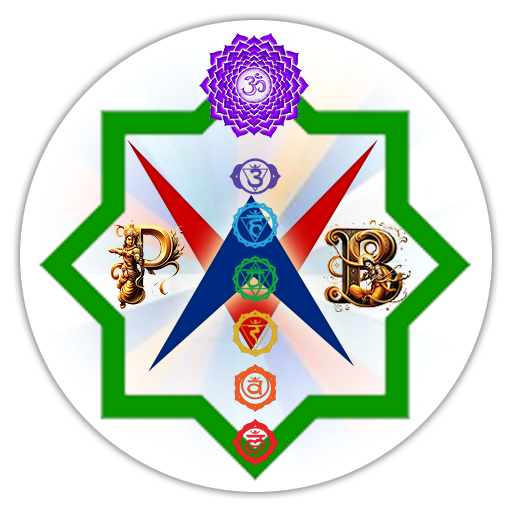శ్రీమద్భగవద్గీత - 502: 13వ అధ్., శ్లో 13 / Bhagavad-Gita - 502: Chap. 13, Ver. 13
- Prasad Bharadwaj
- Feb 16, 2024
- 3 min read

🌹. శ్రీమద్భగవద్గీత - 502 / Bhagavad-Gita - 502 🌹
✍️. శ్రీ ప్రభుపాద, 📚. ప్రసాద్ భరద్వాజ
🌴. 13వ అధ్యాయము - క్షేత్ర క్షేత్రజ్ఞ విభాగ యోగం - ప్రకృతి, పురుషుడు, చైతన్యము - 13 🌴
13. జ్ఞేయం యత్తత్ప్రవక్ష్యామి యజ్ జ్ఞాత్వామృతమశ్నుతే |
అనాది మత్పరం బ్రహ్మ న సత్తన్నాసదుచ్యతే ||
🌷. తాత్పర్యం : దేనిని తెలిసికొనుట ద్వారా నీవు అమృతత్వమును ఆస్వాదింపగలవో అట్టి తెలియదగిన దానిని నేను వివరింతును. అనాదియును, నాకు ఆధీనమును అగు బ్రహ్మము(ఆత్మ) ఈ భౌతికజగపు కార్యకారణములకు అతీతమై యుండును.
🌷. భాష్యము : శ్రీకృష్ణభగవానుడు ఇంతవరకు కర్మక్షేత్రమును గూర్చి మరియు కర్మక్షేత్రము నెరిగిన క్షేత్రజ్ఞుని గూర్చి వివరించియున్నాడు. అలాగుననే క్షేత్రజ్ఞుని యెరుంగు విధానమును సైతము అతడు విశదీకరించియున్నాడు. ఇక తెలియదగినదానిని గూర్చి వివరింపనెంచి తొలుత ఆత్మను గూర్చియు, పిమ్మట పరమాత్మను గూర్చియు వివరించుట నారంభించుచున్నాడు. అట్టి ఆత్మ, పరమాత్మల జ్ఞానముచే మనుజుడు అమృతతత్త్వమును ఆస్వాదింపగలడు. ఆత్మ నిత్యమని ద్వితీయాధ్యాయమున తెలుపబడిన విషయమే ఇచ్చతను నిర్ధారింపబడుచున్నది. వాస్తవమునకు జీవుడు ఎన్నడు జన్మించెనో ఎవ్వరును తెలుపలేరు. అదే విధముగా అతడు భగవానుని నుండి ఉద్భవించిన వైనమునకు సంబంధించిన చరిత్రను సైతము ఎవ్వరును ఎరుంగరు. కనుకనే అతడు అనాది యని పిలువబడినాడు. ఈ విషయమే “న జాయతే మ్రియతే వా విపశ్చిత్” అని కఠోపనిషత్తు (1.2.18) నిర్ధారించుచున్నది. అనగా దేహము నెరిగిన క్షేత్రజ్ఞుడు అజుడును, అమృతుడును, జ్ఞానపూర్ణుడును అయియున్నాడు.
భగవానుడు పరమాత్ముని రూపమున ప్రధాన క్షేత్రజ్ఞునిగాను (దేహము నెరిగిన ప్రధాన జ్ఞాత) మరియు త్రిగుణములకు ప్రభువుగాను ఉన్నాడని శ్వేతాశ్వతరోపనిషత్తు (6.16) నందును తెలుపబడినది (ప్రధాన క్షేత్రజ్ఞపతి: గుణేశ).
అట్టి శ్రీకృష్ణభగవానుని సేవలో జీవులు సర్వదా నిలిచియుందురని “స్మృతి” యందు తెలుపబడినది (దాసభూతో హరేరేవ నాన్యస్యైవ కదాచన). ఈ విషయమునే శ్రీచైతన్యమహాప్రభువు తన బోధనల యందును నిర్ధారించియున్నారు. కావుననే ఈ శ్లోకమునందు తెలుపబడిన బ్రహ్మము యొక్క వర్ణనము ఆత్మకు సంబంధించినది. బ్రహ్మమను పదమును జీవునికి అన్వయించినపుడు అది జీవుడు విజ్ఞానబ్రహ్మమనియే సూచించును గాని ఆనందబ్రహ్మమని కాదు. పరబ్రహ్మమైన శ్రీకృష్ణభగవానుడే ఆనందబ్రహ్మము.
🌹 🌹 🌹 🌹 🌹
🌹 Bhagavad-Gita as It is - 502 🌹
✍️ Sri Prabhupada, 📚 Prasad Bharadwaj
🌴 Chapter 13 - Kshetra Kshtrajna Vibhaga Yoga - Nature, the Enjoyer and Consciousness - 13 🌴
13. jñeyaṁ yat tat pravakṣyāmi yaj jñātvāmṛtam aśnute
anādi mat-paraṁ brahma na sat tan nāsad ucyate
🌷 Translation : I shall now explain the knowable, knowing which you will taste the eternal. Brahman, the spirit, beginningless and subordinate to Me, lies beyond the cause and effect of this material world.
🌹 Purport : The Lord has explained the field of activities and the knower of the field. He has also explained the process of knowing the knower of the field of activities. Now He begins to explain the knowable, first the soul and then the Supersoul. By knowledge of the knower, both the soul and the Supersoul, one can relish the nectar of life. As explained in the Second Chapter, the living entity is eternal. This is also confirmed here. There is no specific date at which the jīva was born. Nor can anyone trace out the history of the jīvātmā’s manifestation from the Supreme Lord.
Therefore it is beginningless. The Vedic literature confirms this: na jāyate mriyate vā vipaścit (Kaṭha Upaniṣad 1.2.18). The knower of the body is never born and never dies, and he is full of knowledge. The Supreme Lord as the Supersoul is also stated in the Vedic literature (Śvetāśvatara Upaniṣad 6.16) to be pradhāna-kṣetrajña-patir guṇeśaḥ, the chief knower of the body and the master of the three modes of material nature. In the smṛti it is said, dāsa-bhūto harer eva nānyasvaiva kadācana. The living entities are eternally in the service of the Supreme Lord. This is also confirmed by Lord Caitanya in His teachings. Therefore the description of Brahman mentioned in this verse is in relation to the individual soul, and when the word Brahman is applied to the living entity, it is to be understood that he is vijñāna-brahma as opposed to ānanda-brahma. Ānanda-brahma is the Supreme Brahman Personality of Godhead.
🌹 🌹 🌹 🌹 🌹




Comments